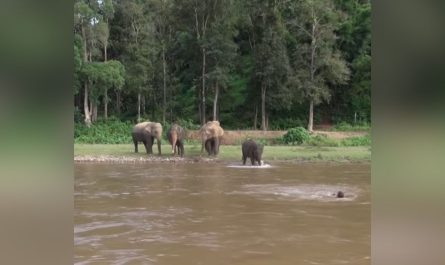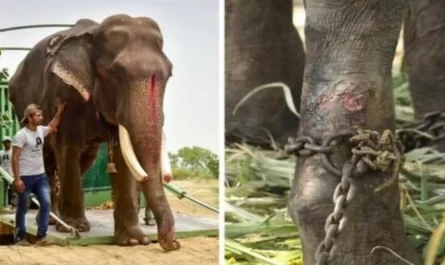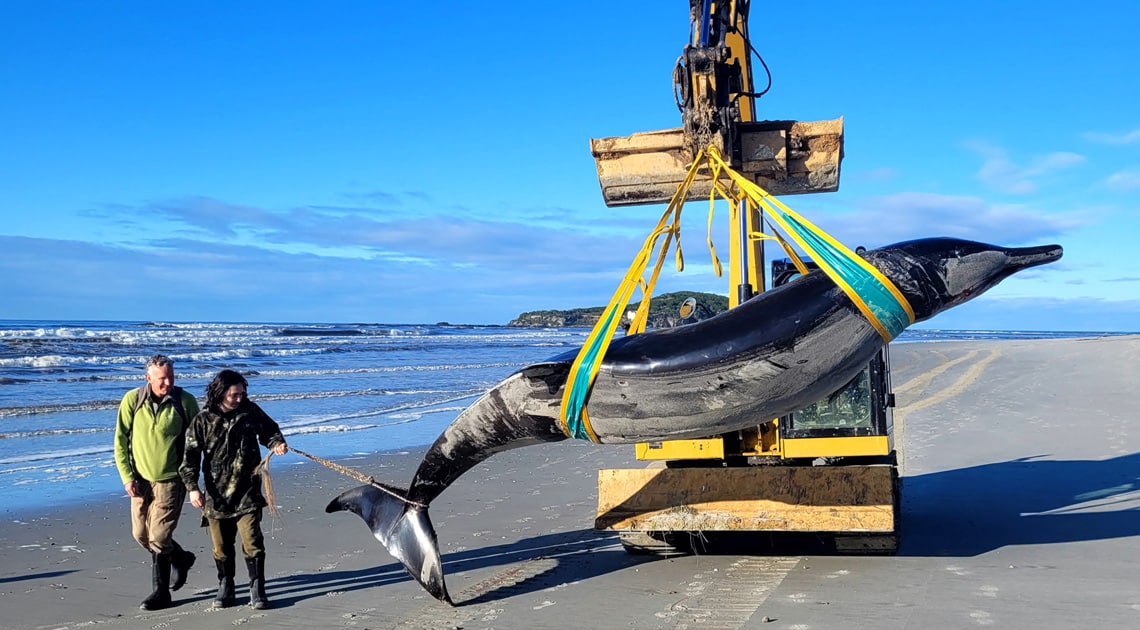
the world’s rarest whale that experts know ‘practically nothing’ about is found on a beach
THE world’s rarest whale has washed up dead in New Zealand, and it could be the first specimen to ever be dissected by scientists.
Since the 1800s, only six spade-toothed beaked whales have been recorded, all of which were discovered deceased.
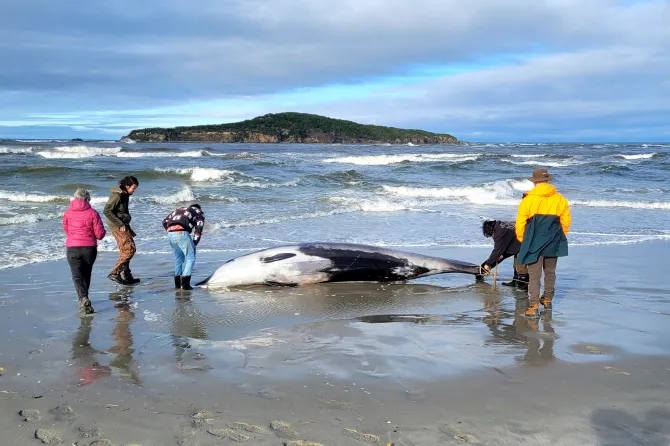
The mysterious, five-metre-long (16ft) creature has never been spotted alive in the wild.
Researchers have not encountered a specimen in such a pristine state that facilitates dissection.
The first intact specimen ever discovered was from a mother and calf stranding in New Zealand’s Bay of Plenty in 2010.
In 2017, a stranding event occurred near Gisborne, a city located on the North Island of New Zealand, providing researchers with an additional specimen for their studies.
A new video released by AP shows the whale being hoisted up from the sand by a digger on a beach near Tairai Mouth, located on New Zealand’s south island, earlier this month.
The whale was then quickly transported to cold storage for preservation.
The marine mammal under study resembles a spade-tooth beaked whale; however, the exact species remains to be definitively identified pending further analysis of genetic samples by scientists.
Its DNA has been sent to the University of Auckland for testing, which is expected to take several weeks to complete.
When asked about the potential confirmation of the discovery, Gabe Davies, who serves as the Operations Manager at the Department of Conservation (DOC) in Coastal Otago, expressed that it would constitute a significant find.
Play VideoHow mysterious & elusive 500-year-old ‘invincible’ polar SHARK may hold secret to extending human life
“Spade-toothed whales are one of the most poorly known large mammalian species of modern times,” Davies explained.
Since the 1800s, a total of six samples have been documented globally, with the majority originating from New Zealand except for one instance.
“From a scientific and conservation point of view, this is huge.”
We know very little, practically nothing.Hannah Hendriks, Marine Technical Adviser For The DOC
Hannah Hendriks, a marine technical adviser at the Department of Conservation (DOC), emphasized the lack of substantial knowledge regarding these creatures, indicating a significant gap in our current understanding.
“This is going to lead to some amazing science and world-first information.”
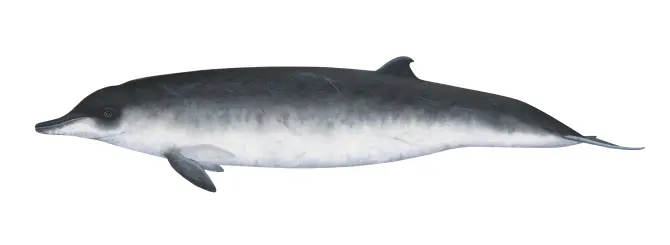
Nadia Wesley-Smith, the Chair of Te Rūnanga ō Ōtakou, has announced that the rūnaka, a council representing the Māori community, is set to collaborate with the Department of Conservation (DOC) in relation to its latest finding.
“It is important to ensure appropriate respect for this taoka is shown through the shared journey of learning, applying mātauraka Māori as we discover more about this rare species,” she said.
